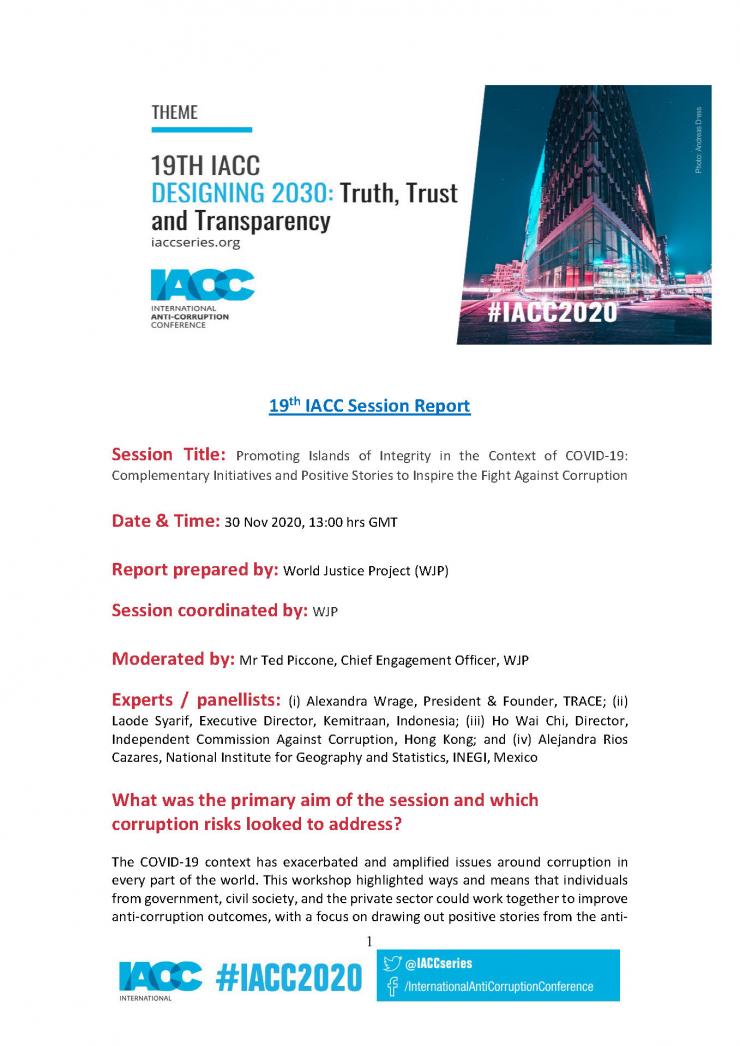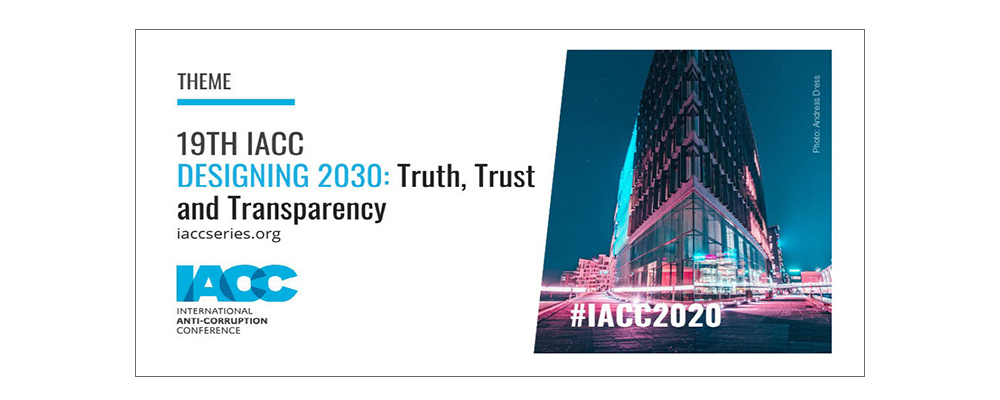

The International Anti-Corruption Conference (IACC) is the world's premier global forum for bringing together heads of state, civil society, the private sector and more to tackle the increasingly sophisticated challenges posed by corruption. The World Justice Project was pleased to organize the following session on "Islands of Integrity in the Context of COVID-19" at the 19th IACC, with WJP Chief Engagement Officer Ted Piccone moderating. Learn more, watch the recording, and download the session report below.
Promoting Islands of Integrity in the Context of COVID-19: Complementary Initiatives and Positive Stories to Inspire the Fight Against Corruption
The COVID-19 context has exacerbated and amplified issues around corruption in every part of the world. This workshop at the 19th International Anti-Corruption Conference (IACC) highlighted ways and means that individuals from government, civil society, and the private sector could work together to improve anti-corruption outcomes, with a focus on drawing out positive stories from the anti-corruption landscape in their respective communities. Speakers also discussed how collaboration and sharing best practices strengthened their work at different levels of society to respond to the new challenges of the COVID-19 crisis.
Speakers:
- Alexandra Wrage, President & Founder, TRACE
- Laode Syarif, Executive Director, Kemitraan, Indonesia
- Ho Wai Chi, Director, Independent Commission Against Corruption, Hong Kong
- Alejandra Rios Cazares, National Institute for Geography and Statistics, INEGI, Mexico
- Ted Piccone, Chief Engagement Officer, World Justice Project (moderator)
Download the Session Report:








